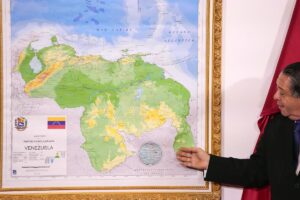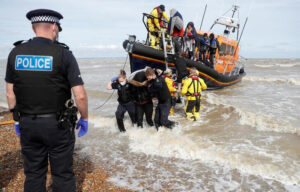HISTORICAL MILIEU
European Union was founded to thwart friction between its members, especially the repetition of the Second World War. European Coal and Steel Community in the 50s began assembling Belgium, France and Germany to better their economic cooperation. In 1957, the Treaty of Rome during the height of the cold war created a ‘common market’ called as European Economic Community. In the 60s, European countries voluntarily let go of levying custom duties and initiated joint control on food production.
The Community initiated funding to its needful members on health and infrastructure. In 1979, members were allowed to elect their representatives to European parliament. In the 1980s with the signing of the Single European Act, Europe appeared closer to ‘single market’ status. In 1989, the Berlin Wall was torn down leading to reunification of East and West Germany.
With receding communism across Europe, in 1993, free movement of goods, service, people and capital improved. In the 1990s, the Maastricht Treaty incorporated E.U. to promote banking cooperation by introducing Euro and European citizenship among others. Treaty of Amsterdam devolved the national government’s legislative powers to E.U. on common foreign and security policies, immigration, civil and criminal laws. During this period as few more nationalistic states joined the Union, ‘Schengen’ mechanism allowed free movement of Europeans. In 2000s a common consensus arose to eradicate terrorism as an aftereffect of 9/11 and to mitigate climate change. Treaty of Lisbon provided for a common competition law, as European Convention on Human Rights gained legal status and European institutions such as the Council, Parliament and the Court of Justice’s policy mandate were widened. Presently, E.U. is confronted with pertinent puzzles of economy, refugee crisis, euro skepticism, brexit and climate.
FRUGAL MISMANAGEMENT
Primary motive abaft Europe integrating was trade liberalization besides ensuring peace and shared prosperity. However, intra-European trade is made susceptible to centralized over regulation from Brussels. As a result, to maintain their normative quotas dairy farmers and fisherman had to destroy excess produce. Structural and Cohesion Funds used to transfer wealth through taxes from moneyed European members to famished ones became a hub for corruption. E.U. is emphasizing less on new tech such as AI or blockchain as affirmed with non-existence of a European Amazon or Alibaba, this calls for introspection in order to fuel their 4th Industrial Revolution.
The Euro has split Europeans than synthesizing them, due to major Eurozone members reneging on limiting cumulative debt to 60% of their GDP and deficits to 3%. Eurobonds are touted as a response without clarity to debts beyond 60% of GDP to raise capital for making inroads abroad in their local currencies without a foreign exchange peril. There is surging aversion towards the monetary union as Eurozone members can no longer make their exports competitive through currency deflation. They cannot monetize their way out of recessions or provide their citizens with stress-free safety nets.
ECB is accused of inconsiderate lending to surplus countries with dried coffers in tax revenue. Each time a debtor defaults European banks jump in to bail out, as witnessed in instances of Greece, Italy, Portugal and Spain in the aftermath of 2008 financial crisis. Delayed reaction of ECB to usher in quantitative easing during the crisis aggravated economic distress and battered austerity measures. This concern exacerbates when wealthy Northerners negate apportioning fiscal burdens of Southern states by unifying banking systems.
However, Art.125 of Lisbon Treaty stipulates each country is solely responsible for its debts and Art.123 prohibits ECB investing in primary and secondary market sovereign bonds. Both instructions have been bypassed and Greece with its 177.1% of debt to GDP in 2014 is still kept in the Eurozone. The Multiannual Financial Framework 2021-2027 which is a seven year budgetary mechanism is subject to fierce negotiation, recently, E.U’s share in this pool dropped to 30%, necessitating Northern and Western members to pony up. Meanwhile, questions on equitable dispensation of funds remain.
EXODUS INTO THE UNKNOWN
Migration from Africa and the Middle East is another concern, albeit not like levels of 2015, in 2020 almost 100,000 people crossed over to Europe. Pro-immigration Germany welcomed them but without a nationwide strategy of rehabilitation upon arrival. Hungary and Poland decided to shut their borders. There is no unified blueprint to handle the refugee crisis currently. Migrants are kept in appalling conditions with a risk of ‘fast-tracked’ deportation to their hellish homes. Geneva Convention mandates each asylum application be processed at point of entry, Greece and Italy have ignored this and allowed migrants to traverse across Europe without valid documents.
In corollary, Brussels is trying to forcibly ‘redistribute’ refugees across Europe based on quotas in return for financial assistance to host countries, amidst rising xenophobia and threats of snapping Schengen commitments. This can dismantle cross-Europe supply chains by hurting the labor market. The Union is neglecting the fact that by 2050 the working age population throughout Europe would dwindle to a scant 12%. Migration can be an elixir for this issue.
LOOKING INWARDS
Over the years, major national policy domains have been ceded to Brussels by silencing their electorate’s expression in larger Europe. As an outcome, people are now tendering discomfort with collective governance. For instance, when French and the Dutch voted against E.U. constitution in 2005, the Union simply repackaged it into Lisbon treaty and passed it. Problem being each Union member’s peculiarity is relatively underrepresented, slurring their distinct historical, cultural and political perceptions. Europeans within Europe recognize themselves as German or French rather than as European, they voluntarily restrict their persona to a geographic notion not an ideological one.
A third of E.U. parliament seats belong to Eurosceptic parties, this is evident of growing distaste in ‘europism’. Due to E.U’s appointed not elected bureaucracy and lack of ownership, older democracies such as Denmark and Holland verbalize unemployment standing at 8.4% across Europe and clogged growth at 1.3% in the Euro area as unattended. However, shaky democracies such as Hungary or Czech Republic felt at home.
Few countries also fear a slowdown in Chinese progress could echo on Europe, as China is Europe’s biggest trading partner. Persisting divide in adopting Chinese 5G telecom tech especially on U.S’s allegations is noteworthy.
Western Europeans believe Southern Europe’s subsidization needs a haircut. Easterners reject E.U. immigration policies. This faltering situation is symbolized by voting in populist regimes into power. Per capita income in Luxembourg is almost fifteen times higher than Bulgaria. As a result Bulgarians started to revolt against their incumbent government. Revolters deduce it is because of E.U’s lackadaisical approach in fund management the Bulgarian mafia benefitted, leading to increased levels of economic downturn in their country. Another ongoing perplexity might be delayed approval of Covid-19 vaccines by EMA, when major economies have already trusted such vaccines, E.U. still finds fault in it. The roll-out plan is plagued with a sedated pace of production minus a region-specific and a risk-targeting facet. There lingers a deep vacuum in E.U’s crisis management ability.
UNION’S DEGENERATION
Due to rising discontentment with E.U., U.K. exited the bloc by signing a 1,200 paged brexit deal. It speaks of trading without tariffs but with safety checks, custom declarations at border with minor conditionality on processed meat exports to E.U. Automatic recognition of professional qualifications and operation of professional services ceases hereafter. Travel visas get a new set of compliances. U.K. will gradually phase out E.U’s fishing rights by 2026, in return for taxing U.K’s fish exports. Legal disputes between a sovereign U.K. and E.U. will be referred to an independent tribunal rather than ECJ going forward. There will be no automatic exchange and access to security data with no compulsion to comply with E.U. data protection rules as well. Coming days would be ridden with complex maneuvering in working the deal out amidst dissension across Europe.
CLIMATE CHAOS
Climate change is another acrimonious matter. Several Central and Eastern states shun E.U. Green Deal’s carbon neutrality target of 2050. As they excessively rely on fossil fuels. E.U. tries to address this by introducing ‘Border tax’ to offset the dissention by imposing toned down emission rules on European firms with an unsure future. Noble goals of boosting a circular economy with maximum waste-recycling, scientific handling of consumer durables, promoting organic agrarian processes and fastening sustainable forestry are part of the deal. Nevertheless, these commitments require massive financial outlays to the tune of 260 billion euros for the first twenty years and a sturdy consensus among all states to achieve set targets, which can be arduous considering today’s scenario.
CLEARING THE AIR
Dani Rodrik in his book ‘Straight Talk on Trade’, coins the aforementioned phenomenon as ‘Hyper-globalization’, which signifies globalization as unbounded or unchecked. In his case study, he evidences, Europe has gone too far by acting as a supranational entity.
He points at erratic behavior of E.U. via high-handed common market and rules leading to downsized political rights. He notes European countries have transformed their administrative orientation towards undemocratic leanings. He claims, it has become tortuous to attain unanimity on a matter of policy. Countries on account of losing their sovereign powers have lost optimism in the Union. He narrates, E.U. the economy is limping with an ageing population, successive recessions and unemployment. Facing external pressures such as Russian expansionist attempts, Chinese trade hegemony, crude migrant influx and climate change.
To neutralize this, Rodrik proposes a recipe of structural decentralization and maximal respect to nation state sovereignty. He encourages states to impose voluntary restraints on unnecessary collective action. He aims to strip supranational institutions off their unfettered powers which bury national establishments and their policies to ground. He opines it is the local entities who are best equipped to resolve local issues due to their regional acumen not continental organizations. He informs national bodies to try to not shed their character by finding a middle path between hyper-globalization and ultra-nationalism. He propounds, even though the world is politically divided it shall not be excessively globalized. He instances successes of U.N, IMF, World Bank and WTO which facilitated global commerce and not conduct it. He appreciates such global institutions, as they respected national sovereignty and did not deprive their national dramatis personae unlike the E.U.
This article is written by Subramanya .V. Mysore



